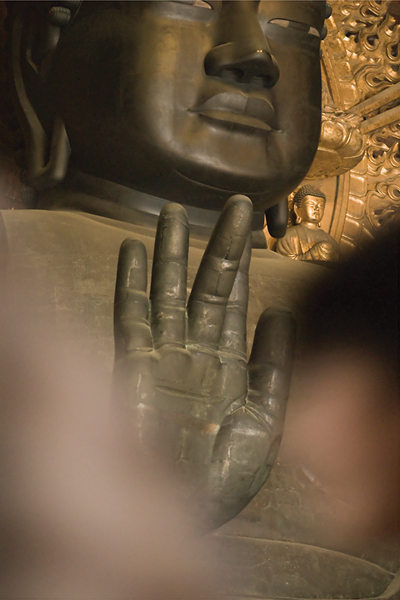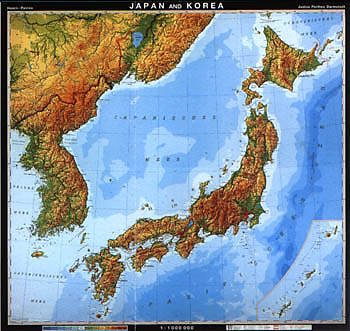![]()
 |
|---|
This unique two-week course offers students an unparalleled opportunity to gain an understanding and appreciation of one of the world's most sophisticated and intriguing cultures. Students embrace an interdisciplinary study abroad experience that is inclusive of Japanese language & cultural components but at its core is pursuant to current trends in digital photography, digital video capture, processing, editing, various output modes, and asset management to emulate the approach and practice of working professionals conducting assignments abroad.
The photography and video industries now see their respective camera platforms intertwined by manufacturers into one image capture device; the DSLR camera. Since still and video shooting modes are integrated on board, they enable the production of not only high-resolution still images but also, broadcast-quality video.
Students participate on numerous field sessions together, and on campus to attend instructional space for lectures, demonstrations, and critique, which enable the creation of Web Galleries & Blog postings. Students explore the historically rich Kansai region of central Japan, including Kyoto, Nara, Kanazawa, and Osaka, which provides a wide variety of settings ranging from tranquil gardens, temples and museums, to city streets crowded festivals and sporting events. One day we travel to Hiroshima, Peace Park, and the memorial sites in proximity to ground zero, however, the gravity of this visit transitions to Miyajima Island, to wander among the pristine alpine forest, the wild deer, and numerous wild monkeys on the summit of Mt. Misen. The students' collective journey culminates in an exhibit of some of their photographic works in the fall at Gallery One on campus, which reveals each their impressions of this intriguing part of the world.
Students live in the residence hall apartments at the Japan Center for Michigan Universities [JCMU], in Hikone, which are designed for double occupancy, with private bedrooms. Laundry facilities, wireless internet and other amenities are provided. The JCMU campus resides on the eastern shoreline of Lake Biwa; the largest body of fresh water in Japan. Hikone is one of Ann Arbor's sister cities, and is situated in the heart of Shiga Prefecture, which is one of Michigan's sister states.
Digital Media Arts at WCC is inclusive of five disciplines, [Animation, Digital Video, Graphic Design, Internet, & Photography] and has recently made some strategic changes in each department’s tier of elective credits. Students majoring in one department can choose entry-level courses in other DMA departments to satisfy their electives, with the objective to expand skills and offer deeper insights that inform their professional practices and final portfolios. Taking this course is a great way to do that!
_____________________________
Digital Photography Abroad
Photography students become acquainted with the color theory of light and color strategies to convey ideas with visual art. By means of shooting assignments in the field, students learn to see, approach, understand, and photograph the dynamics of subject matter and color at different times of day. Emphasis is placed on creating color images (in their choice of genre) in camera and processing them with a minimal amount of digital post-production work, image composites, or collage. Individual reviews of work help identify strengths and areas that need improvement, providing a foundation for creating stronger images and encouraging each student to pursue a personal photographic vision.
Summary of Objectives
• Image construction assignments from Color Photo Design. i.e. composition, light, color, and gesture
• Obtain a stronger proficiency of digital SLR camera functions and peripheral equipment.
• Obtain an excellent command of the color theory of light as it applies to photography, the various physiological aspects of light, and the potential psychological meanings of color.
• Demonstrate a working command of Adobe Lightroom image editing software.
• Determine the processing variables of the RAW file format.
• Demonstrate an understanding of how the color of light effects the color of objects.
• Evaluate color images through the research of color photographers.
• Acquire critical thinking skills as they apply to seeing and understanding visual art, become more visually literate, and applying those tools and techniques in the creation of their own images—ultimately creating a series of idea-driven vs. object-driven images.
• Make technical and aesthetic judgments of color images during group critiques.
• Design and electronicaly post an on-line web gallery of their work-in-progress.
• Demonstrating a command of file management for various types of print output.
• Participation in a group photography exhibit later in the year.
_____________________________
Japanese Language and Culture [pre-departure, non-credit course offering — JPN 4000]
Instructor: Kenji Yano [Yano Consulting]
The core experience in Japan is supported by a short, non-credit Japanese Language and Culture course prior to departure, which provides students not only with useful language skills, but with valuable cultural etiquettes. Time is allocated with the photo instructor to discuss important aspects of packing and equipment preparation. The course is a required component for students registered to travel to Japan, and its cost is embedded in the Program Price. These class sessions are conducted on Saturdays April 9, 16, 23, & 30 | 10am to 12Noon, and are conducted by a local, native Japanese business professional.
Summary of Objectives
• Cultivate an awareness of the country's synthesis of tradition and advanced technology.
• Acquire basic language skills and useful pharses when travelling in Japan.
• Acquire a basic understanding of Japan's complex personal etiquettes and expectations in behavior.
• Acquiring deeper cultural literacy abroad and an appreciation for one's own culture.
• Activate and manage a personal plan for an immersion experience in international living.
 |
_____________________________
Physical Activity Levels in Japan
Prospective students should be aware that their time in Japan involves daily, easy-to-moderate physical activity. It is strenuous only by choice. Walking is the primary mode of travel during field sessions, and the use of a bicyle is integrated into a few local destinations. Please be aware that since you are choosing to live in another country for a couple of weeks — and leaving your automobile behind — your daily activity level is going to increase. Although much of the trip happens to occur in agrarian plains, Japan is a mountainous country, and therefore sometimes presents very steep grades, even on city streets.
Students should expect to be traveling almost everyday by bus, taxi, train, or subway. Almost all train stations in Japan require the negotiation of several (usually crowded) stairways before being able to actually step on board a train. Individuals with limited mobility are not prohibited from joining the trip, but should be aware that not all places are capable of providing adequate accommodations to get from one place to another — some train stations do not have elevators. There are other types of transportation choices available, but those choices have not been budgeted for in the program price. Please consult with Don if you have questions or concerns.
Pre-Departure Personal Health Issues
Students registered for either of these classes are subject to being interviewed by the instructor prior to earning their approval status. Some of the general questions may pertain to your current physical health status, and whether any current condition may create cause for taking preventative actions prior to departure.
In recognition of each student's privacy, and to stay within legal boundaries, you will NOT be asked to disclose detailed and/or sensitive information about your health and physical condition. High expectations implied from each institution are that a student must maintain responsibility for their own health condition while traveling abroad. i.e. bringing and administering the resources to manage one's dietary, mental, and physical health on their own.
In other words, assess the course desciption, daily itinerary, field sessions, and demands of the course before committing to join the trip. For a comprehensive student guide, download the JCMU Student Handbook PDF ![]()
_____________________________
Don Werthmann
professional faculty — photo
washtenaw community college
